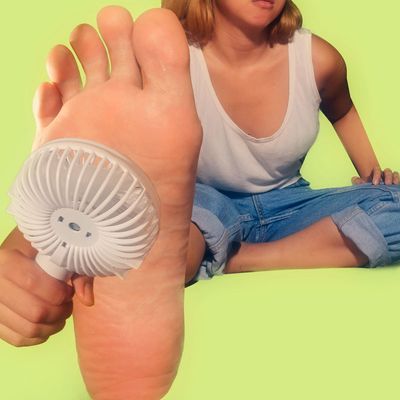Specialist Dermatology Solutions for Treatment of Hyperhydrosis of Hands: Comprehensive Overview
Specialist Dermatology Solutions for Treatment of Hyperhydrosis of Hands: Comprehensive Overview
Blog Article
Recognizing the Origin of Excessive Sweating and Its Influence On Life
While it is typically understood as a physical reaction to control body temperature level, the triggers for extreme sweating can vary widely amongst people, including not just physical elements but also emotional and psychological elements. By diving into the root creates of hyperhidrosis and exploring its multifaceted effects, a much deeper understanding of this prevalent issue can be obtained, dropping light on the complexities that people grappling with too much sweating navigate on an everyday basis.
Physiology of Sweat Glands
The law of sweat manufacturing, a critical physiological procedure, is largely managed by the task of sweat glands distributed across the human body. Sweat glands are classified into 2 primary types: eccrine and apocrine glands.
When the body temperature increases, either because of exercise, high temperatures, or psychological anxiety, the nerves activates the gland to produce sweat. This sweat is made up largely of water and electrolytes like sodium and chloride. The process of sweat manufacturing is essential for preserving the body's inner temperature level within a narrow, ideal array, highlighting the critical function gland play in human physiology.
Triggers for Excessive Sweating
In recognizing the origin of too much sweating, it is essential to determine the triggers that can cause this physical feedback. Excessive sweating, also called hyperhidrosis, can be triggered by numerous variables, both ecological and physical. One usual trigger is emotional stress or anxiety, which can boost the body's gland to generate even more sweat than is essential for cooling down. Physical physical effort, heats, and spicy foods are additionally recognized to cause excessive sweating in people susceptible to this problem. Additionally, particular medical problems like menopause, hyperthyroidism, or diabetes mellitus can add to extreme sweating as well.
Additionally, drugs such as some antidepressants, opioids, and specific supplements can likewise work as triggers for hyperhidrosis. Comprehending these triggers is vital in managing too much sweating properly - Treatment for hyperhydrosis of hands and feet. By determining and addressing the details triggers that trigger too much sweating in an individual, doctor can establish personalized treatment strategies to minimize this problem and improve the person's quality of life
Medical Conditions Associated
Related to excessive sweating are different clinical conditions that can worsen this physical response. One typical problem is hyperhidrosis, a disorder defined by extraordinarily increased sweating that surpasses the body's thermoregulatory demands. This can manifest in focal areas like the hands, soles, underarms, or face, influencing an individual's high quality of life because of social shame and discomfort.
In addition, endocrine disorders such as hyperthyroidism, diabetes, and menopausal hot flashes can also result in extreme sweating. Hyperthyroidism triggers an overflow of thyroid hormonal agents, increasing metabolic rate and causing sweating. Diabetes mellitus can generate sweating episodes, specifically throughout hypoglycemic episodes when blood glucose try this website degrees drop too low. Menopausal hot flashes, attributed to hormone variations throughout menopause, can trigger intense and abrupt sweating, often accompanied by flushing and heart palpitations.
Additionally, infections like hiv, consumption, and endocarditis have been related to evening sweats, a typical sign known to disrupt sleep and impact general well-being. These clinical conditions highlight the diverse variety of underlying aspects that can contribute to too much sweating, requiring extensive assessment and monitoring by health care professionals.
Psychological and psychological Elements

Effect On Social Communications
Excessive sweating can have extensive effects on an individual's capacity to engage pleasantly in social interactions. The noticeable signs of sweat spots or wet spots on clothing can cause embarrassment and self-consciousness, triggering people to withdraw from social circumstances. This withdrawal can influence relationships, limitation social tasks, and hinder professional and individual development.

Moreover, the anxiety and self-confidence concerns originating from excessive this link sweating can affect interaction and social abilities. People might battle to concentrate on discussions, get involved in team activities, or share themselves confidently. This can cause feelings of seclusion and solitude, as social connections come to be check my site challenging to preserve.
Verdict

While it is generally understood as a physiological reaction to regulate body temperature, the triggers for too much sweating can differ widely among people, including not just physical factors yet emotional and likewise emotional elements. By delving right into the root causes of hyperhidrosis and exploring its diverse results, a deeper understanding of this prevalent concern can be obtained, dropping light on the complexities that people grappling with too much sweating navigate on an everyday basis.
Physical effort, high temperatures, and spicy foods are additionally known to set off extreme sweating in individuals prone to this problem. By identifying and dealing with the certain triggers that motivate excessive sweating in a private, health care companies can establish tailored treatment plans to alleviate this condition and improve the individual's quality of life.
Extreme sweating can have extensive impacts on an individual's ability to engage pleasantly in social communications.
Report this page